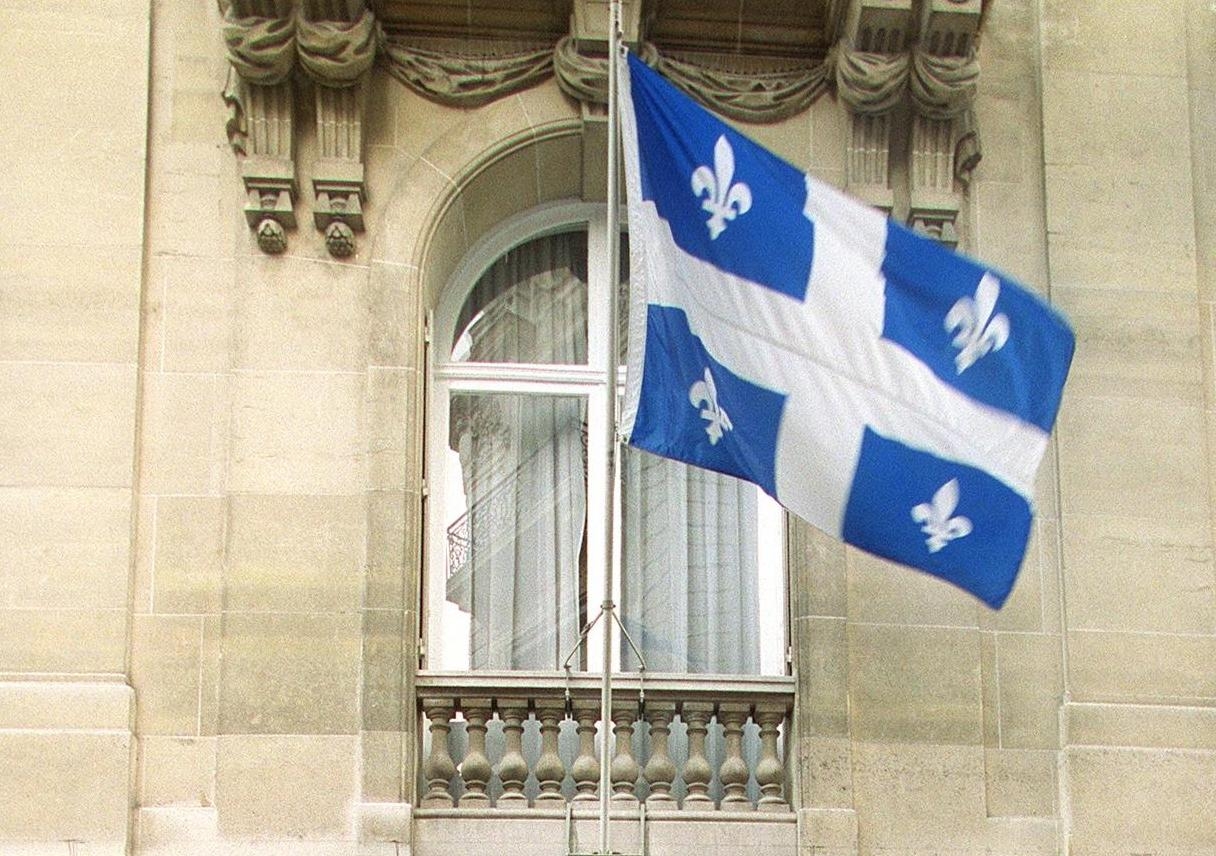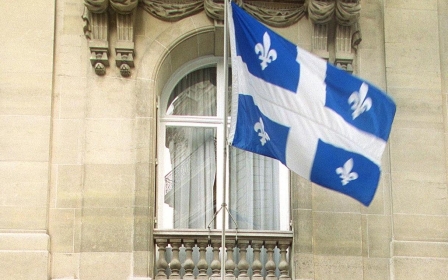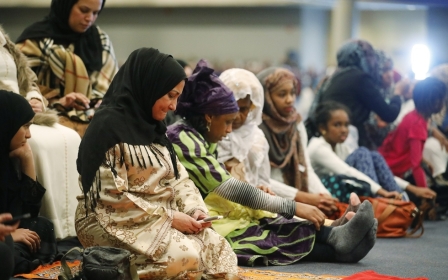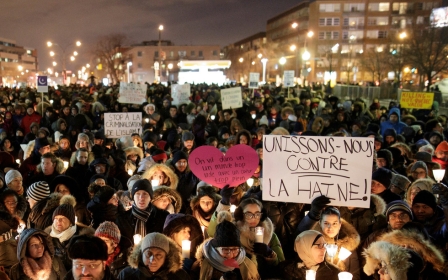Canada: Quebec passes law barring religious symbols in public sector

The Canadian province of Quebec has passed a contentious law that bans public sector employees from wearing religious symbols - the Jewish kippah, Sikh turban or Muslim hijab, among others - on the job.
The legislation, widely known as Bill 21, passed in a 73-35 vote late on Sunday and takes effect immediately.
Quebec's right-wing Coalition Avenir Quebec government, which holds a majority in the provincial legislature, invoked a seldom-used clause to limit debate on the contentious law.
"Today is an important moment, a moment that Quebecers have long been waiting for," Quebec Premier Francois Legault said after the vote on Sunday.
"It's very clear, when we talk to Quebecers, that they want us to ban religious symbols for people in positions of authority."
New MEE newsletter: Jerusalem Dispatch
Sign up to get the latest insights and analysis on Israel-Palestine, alongside Turkey Unpacked and other MEE newsletters
Less than 24 hours after it was passed in a marathon session of the National Assembly, advocacy groups announced plans to file a legal challenge against Bill 21.
The National Council of Canadian Muslims and the Canadian Civil Liberties Association on Monday said they were asking the Quebec Superior Court for an injunction to bar the province from implementing the law.
The groups said in a statement that Bill 21 "is unconstitutional and will cause irreparable harm to religious minorities" in the French-speaking province.
"Bill 21 effectively creates second-class citizenship … Bill 21 is an assault on our freedom, our constitution and our country," said Mustafa Farooq, NCCM's executive director, in a press conference on Monday afternoon in Montreal.
"We will stop Bill 21," he added.
The court is expected to hear the groups' demand for a stay on 20 June.
Ichrak Nourel Hak, an education student in Quebec who wears the hijab, was named as a plaintiff in the case.
"The decision to wear a hijab was mine and came from me. The decision to remove it should also come from me, not the government. This law has stripped me of my dream and sends me a clear message that I am not a valued part of Quebec society," Hak said in the statement.
Quebec has hosted a debate over religious symbols in the public sector for over a decade.
Bill 21, officially known as "An Act respecting the laicity of the state", would bar teachers, school administrators, lawyers, and other state employees from doing their jobs while wearing religious symbols.
Individuals who are already working for the government will be granted an exemption from the restrictions, provided they don't switch jobs.
"It is important that the paramountcy of state laicity be enshrined in Quebec's legal order," the law states.
Rights groups have decried the legislation as an attack on religious freedoms, accusing the province of unfairly targeting Muslim women in particular.
Previous bills that aimed to regulate religious symbols in the public sector have been introduced, but failed to pass, over the past several years in Quebec.
One past piece of legislation, known as Bill 62, would have barred anyone from receiving or giving public services with their faces covered, while another would have created a so-called Charter of Values that would also have restricted religious symbols in the public sector.
In anticipation of potential legal challenges, Legault's government has said it plans to invoke a clause that allows it to temporarily override individual rights that are protected under the Canadian and Quebec charters of rights and freedoms.
"Quebecers have the right to say to the rest of Canada this is how we live in Quebec," the premier also recently said, about invoking the notwithstanding clause.
It remains unclear how the province intends to enforce the legislation.
Middle East Eye delivers independent and unrivalled coverage and analysis of the Middle East, North Africa and beyond. To learn more about republishing this content and the associated fees, please fill out this form. More about MEE can be found here.





